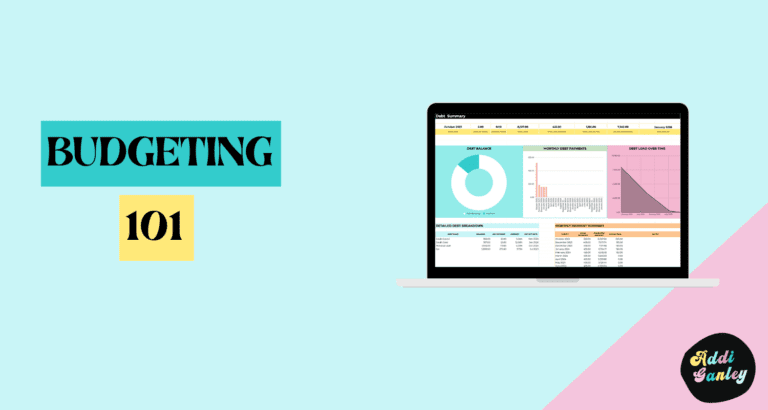
Before diving into the nitty-gritty of budgeting, it’s essential to understand the basic principles that guide the process. These principles serve as the building blocks of a successful budget.
Income versus expenses
Your budget is all about balancing your income and expenses. Income includes all the money you earn, while expenses include everything you spend, from rent and groceries to entertainment and utilities.
Priority
Recognize that not all expenses are created equal. Some are essential, like housing and groceries, while others are discretionary, like eating out or buying new gadgets.
Prioritizing your spending is a critical aspect of budgeting.
Many things in our life seem like a necessity, but in reality they are not. When you start a budget, you’ll need to make some tough decisions about how and where you want to spend your money.
Keep in mind that it will change over time as your lifestyle changes.
Control and flexibility
A budget gives you control over your finances while allowing you flexibility. It doesn’t mean you can’t enjoy life or treat yourself, but it helps you make informed decisions about where your money goes.
Discover how to change your mindset for financial success
Creating a budget requires a change in your mindset. Instead of seeing it as a limiting tool, think of it as a means to achieve your financial goals and enjoy peace of mind.
Abundance vs scarcity
Embrace an abundance mindset, recognizing that your budget enables you to make the most of your resources. It’s not about deprivation. it’s about allocating your money purposefully.
When you change your mindset about your budget, it will make the whole process a lot easier.
You have to be willing to make the necessary changes or it won’t work.
Financial freedom
Understand that budgeting can lead to financial freedom. By knowing where your money is going, you can make choices that get you closer to your goals, whether it’s paying off debt, saving for a vacation, or preparing for retirement.
Long Term Thinking
Shift your focus from short-term gratification to long-term financial security. While budgeting may require sacrifices, the rewards are ultimately worth it.
Focus on why you’re budgeting and what you’re saving for each month.
Maybe you want to get out of debt or maybe you want to save up to buy your first home. You need to constantly think about these goals as you make decisions each day about how to spend your money.
Set clear financial goals to guide your journey
Goals provide direction and motivation for your budget. Without clear goals, it’s hard to stay committed to the process. Here’s how you can set meaningful financial goals:
Identify short-term and long-term goals
Your financial goals can range from paying off credit card debt within a year to buying a home in five years or a comfortable retirement in thirty years.
Distinguish between short-term and long-term goals.
What are your goals?
Make your goals specific
The more specific your goals are, the easier it is to work towards them. Instead of saying “I want to save money,” they say, “I want to save $5,000 for an emergency fund in the next 12 months.”
Set realistic goals
While it’s great to dream big, your goals should also be achievable within your financial means.
Setting unrealistic goals can lead to frustration and discouragement.
Track your progress
Check your progress regularly and adjust your goals as needed. Life circumstances change and your financial goals may evolve as well.
Master the art of effectively tracking income and expenses
To create a successful budget, you need a clear picture of your financial inflows and outflows. Here’s how you can effectively track your income and expenses:
-
Keep detailed records: Keep a record of all your sources of income, including your salary, self-employment, rental income and any other money you receive. On the expense side, keep detailed records of every penny you spend, from rent and utility bills to coffee shops and online shopping. For easy tracking, check out our monthly budget spreadsheets.
-
Categorize expenses: Group your expenses into categories like housing, transportation, groceries, and entertainment. This helps you understand where your money is going and identify areas where you can cut back or allocate more funds.
-
Track Your Progress: Check your budget regularly to make sure you’re staying on track. If you notice deviations from your plan, don’t be discouraged. Adjust your budget as necessary to cover unexpected expenses or changes in your income.
Here is an example of a budget:
Fixed Expenses (50-60%):
-
Rent/Mortgage: $12,500 – $15,000 per year (25-30%)
-
Utilities: $2,500 – $5,000 per year (5-10%)
-
Insurance (health, auto, renters/homeowners): $5,000 – $7,500 per year (10-15%)
-
Loan payments (student loans, car loans, etc.): $2,500 – $5,000 per year (5-10%)
-
Other fixed costs (eg subscriptions): $2,500 – $5,000 per year (5-10%)
Variable Expenses (20-30%):
-
Groceries: $2,500 – $3,750 per year (5-7.5%)
-
Transportation (gas, maintenance, public transit): $1,250 – $2,500 per year (2.5-5%)
-
Personal care (grooming products, haircuts, etc.): $1,000 – $2,500 per year (2-5%)
-
Entertainment/Leisure: $2,500 – $5,000 per year (5-10%)
Saving (20%):
-
Emergency Fund: $10,000 (assuming 20% of $50,000)
-
Retirement Savings (401(k), IRA): $5,000 – $7,500 per year (10-15%)
-
General savings (for future goals, large purchases): $2,500 – $5,000 per year (5-10%)
Debt repayment (if any):
Miscellaneous (5-10%):
-
Anything that doesn’t fall into the above categories. This could include additional savings, investments or discretionary spending

